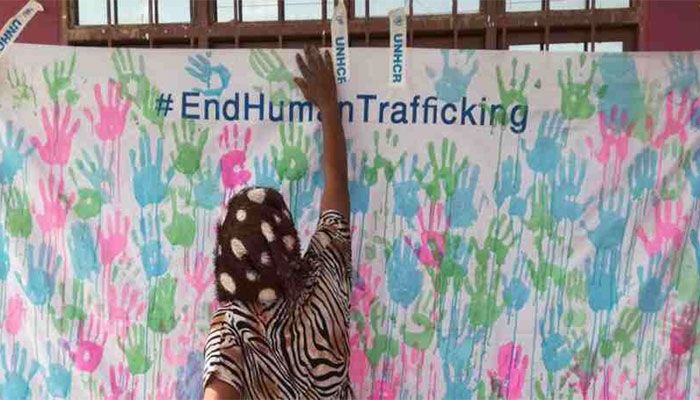
Desk Report
Publish: 31 Jul 2022, 08:23 am

Photo: Collected
Human trafficking is an all-out assault on people's rights, safety and dignity, Secretary-General António Guterres said Friday, the eve of World Day Against Trafficking in Persons, reports UNB.
"Tragically, it is also a problem that is growing worse – especially for women and girls, who represent the majority of detected trafficked persons globally," he added.
Conflicts, forced displacement, climate change, inequality and poverty, have left tens of millions of people around the world destitute, isolated and vulnerable.
And the Covid-19 pandemic has separated children and young people from their friends and peers, pushing them into spending more time alone and online.
Human traffickers are taking advantage of these vulnerabilities, using sophisticated technology to identify, track, control and exploit victims, the UN chief said.
Often using the "dark web," online platforms allow criminals to recruit people with false promises.
And technology anonymously allows dangerous and degrading content that fuels human trafficking, including the sexual exploitation of children.
This year's theme – "Use and Abuse of Technology" – reminds everyone that while it can enable human trafficking, technology can also be a critical tool in fighting it.
"As part of 2023's Summit of the Future, I have proposed a global digital compact to rally the world around the need to bring good governance to the digital space," Guterres said, calling on everyone to "give this issue the attention and action it deserves and work to end the scourge of human trafficking once and for all."
Ghada Waly, head of the UN Office on Drugs and Crime, said although digital technologies have been a vital lifeline during pandemic restrictions, they are being increasingly exploited by criminals.
The borderless nature of information and communications technologies enables traffickers to expand their reach and profits with even greater impunity.
More than 60 percent of known human trafficking victims over the last 15 years have been women and girls, most of them trafficked for sexual exploitation.
And as conflicts and crises increase misery, countless others are in danger of being targeted with false promises of opportunities, jobs, and a better life.
To protect people, digital spaces must be shielded from criminal abuse by harnessing technologies for good. Partnerships with tech companies and the private sector can keep traffickers from preying on the vulnerable and stop the circulation of online content that amplifies the suffering of trafficking victims, Ghada said.
With the right support, law enforcement can use artificial intelligence, data mining and other tools to detect and investigate trafficking networks, she added.
A group of UN-appointed independent human rights experts underscored that the international community must strengthen prevention and accountability for trafficking in persons in conflict situations.
Women and girls, particularly those who are displaced, are disproportionately affected by trafficking in persons for the purpose of sexual exploitation, forced and child marriage, forced labour and domestic servitude.
"These risks of exploitation, occurring in times of crisis, are not new. They are linked to and stem from existing, structural inequalities, often based on intersectional identities, gender-based discrimination and violence, racism, poverty and weaknesses in child protection systems," the experts said.
Refugees, migrants, internally displaced and stateless people are particularly at risk of attacks and abductions that lead to trafficking.
And the dangers are increased by continued restrictions on protection and assistance, limited resettlement and family reunification, inadequate labour safeguards and restrictive migration policies.
Subscribe Shampratik Deshkal Youtube Channel
© 2024 Shampratik Deshkal All Rights Reserved. Design & Developed By Root Soft Bangladesh